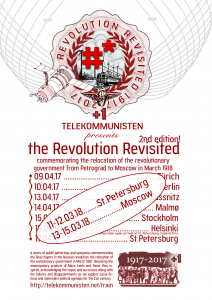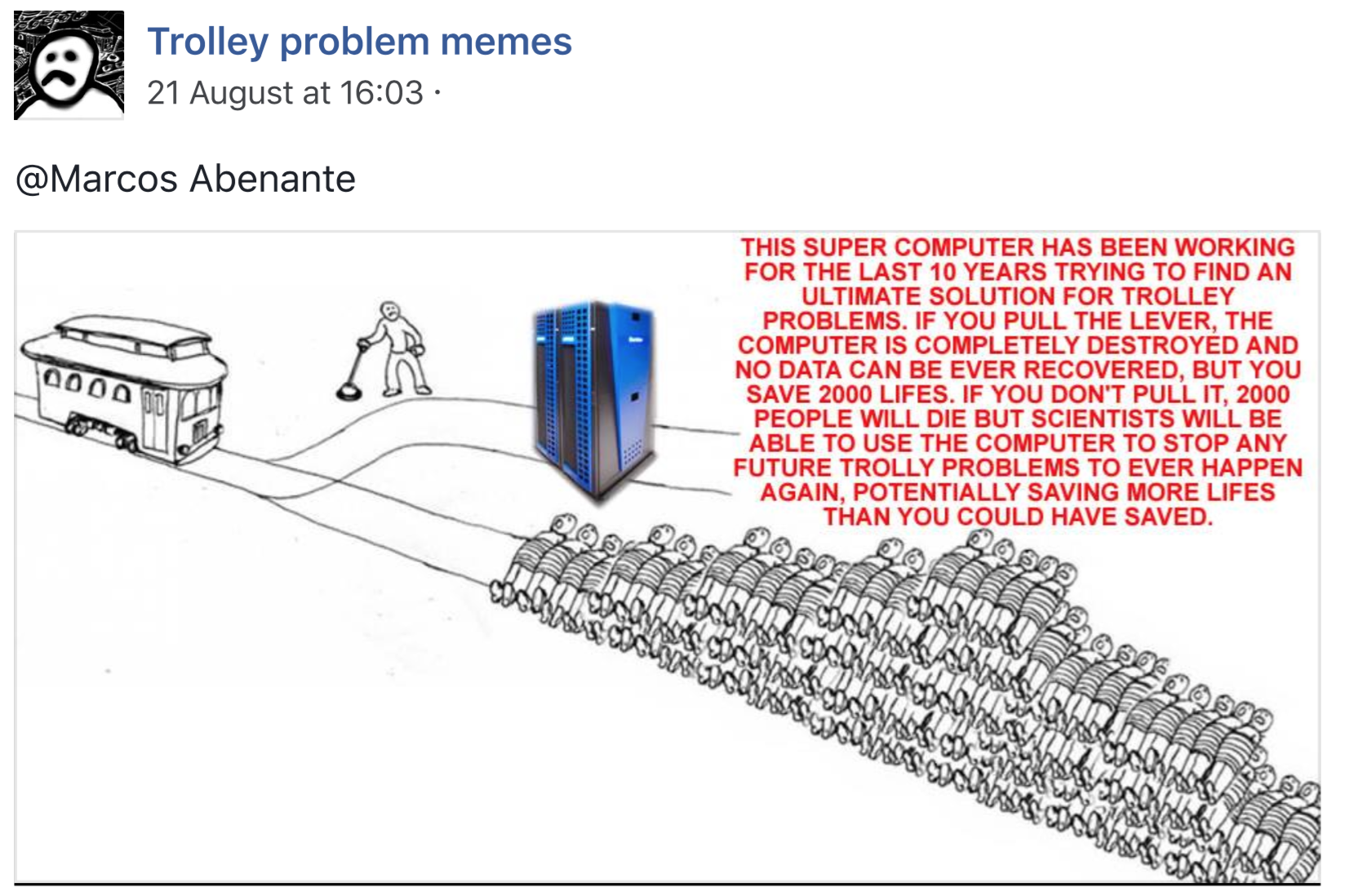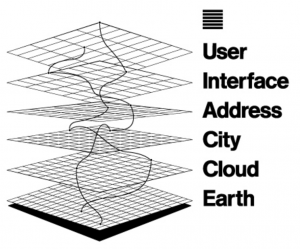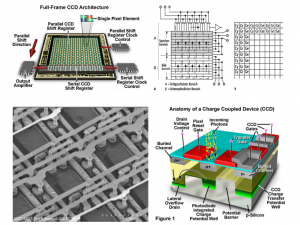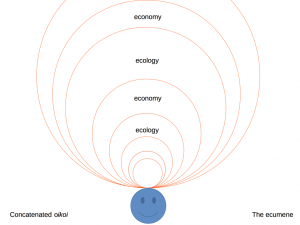>>this essay is in progress, expect changes, it may also morph into two or more separate essays<<
It is ironic, in this age of advanced scientific and technological affordances, suffused with the triumph of reason, that the status of truth is seen to be in crisis. This may be due to the fact that the technologies which work so reliably on the basis of rational, causal scientific principles, require not fundamental truths, but only instrumental ones. For the truth to be instrumental, it must produce timely facts, occurrences on which our politics are leveraged.
The Ancient Greek physicists, Thales, Democritus, Leucippus, Epicurus, were interested in the ontological truth of materials, speculating their inner workings and principles into extreme mathematics. Today’s science is more sanguine about the accessibility of any comprehensive physical truth. Though the mathematics have only become more complex and extravagant, the objective is not philosophy but reliability, the mastering of measurable behaviours of materials in the service of human needs. Rather than demonstrating comprehension of essential truths about their material existence, contemporary advanced technologies evidence, and persistently manifest control over the behaviours of (the aspects of) the materials we can understand.
In other words, we have surrounded ourselves with a menagerie of technical affordances which are designed from the atomic level upwards to serve human needs. This domestication of nature at the mineral, atomic, and sub-atomic level at play in the metallurgy of computer hardware, is no different in principle to the “Natural nano-tech”[1] domestication of plants, livestock and other humans, which produced the sedentary agrarian civilization which is the basis for the technology you are reading this on right now. As Norbert Wiener observed, cybernetics is merely automated slavery[2] Every civilization based on slavery has to contend with a perverse excess of material capacity which has no place in the servitude. What to do with the intelligence, imagination and dreams of the slave, or, even that of the resource cow?
All the things of this world come into our economy though need. Through need to feed families we scanned the skies and divined rhythms of the seasons and climates. Through need to feed families we domesticated minerals, plants, animals and other humans. Needs define the meaning anything acquires.[3] Epistemology is not only anthropomorphic, it is opportunistic, it always has an end in mind, the open end called “survival”. So epistemology is always to some degree teleological, in that the result must always be “we survive” it might even be an open form of secular humanist eschatology.
Needs are acute. They are more precise than general perception. Needs focus perceptions and the perceptions which are not needed to assuage the needs are disregarded. Thus the pain and trauma of the slave or of the resource animal is disregarded, much literature is dedicated to why this must be so.[4] specific parts of animals, minerals and plants are excised to fulfil particular vital needs and the rest must be discarded. In colonialism, the intelligence, the flourishing of whole generations of human beings is suppressed for the benefit of the colonizers.
Many of the “former colonies” still work today under the heel of the Northern powers, as a massive stockpile of wealth, without which the latter would founder. Thus the inability for Europeans to respond when the misery and despair of their southern neighbours reaches such a pitch that people risk terrible odds to flee on rafts meant to escape a sinking ship. The suppression of the aspirations of those who produce the wealth for all, has been a part of the Humanist project for so long it has become accepted (necessary evil) inextricable from Humanist aspiration. The glories of the Louvre and Versailles are built on human bones, not only those of the serfs and downtrodden ripped-off of Europe but even more so, the sacrificed human bodies of Africa, Asia, America, everywhere humanism-justified colonial dominion maintained. Beneath the slick veneer of digital wonder-things which allow us to navigate the last-minute excitement of global finance disruption culture is “primitive accumulation” all the way down.
A utilitarian understanding of truth strips away the “necessary” from the “expendable”. The “expendable” is an epistemological black hole called waste, a place of fear and its excess, fantasy[4]. The enormous “efficiency” of contemporary technologies leave us powerless to contend with the unexpectedly complex excesses of global warming, the e-waste and resource wars of the electronics production chain. An ambitious epistemological regime needs to square the rationalist/functionalist circle to bring “what works” back into perspective with “what is”. Acknowledging the minuscule understanding we have today of “what is” [5] will help us examine “what works” with the scientific rigour it deserves, since “what works” is not the truth, but only convenience, and the truth is forever catching up with us.
Post-truth was named the “word of the year 2016” by the Oxford Dictionary, defined as “relating to or denoting circumstances in which objective facts are less influential in shaping public opinion than appeals to emotion and personal belief”. Strangely, or perhaps understandably, there is no Truth in the definition, instead there are “objective facts”. The rest of the definition positions post-truth clearly in the realm of propaganda, coercion, peer pressure, in short “argumentum ad passiones” arguments directed to the passions as opposed to those directed towards reason. Time flies when you’re having fun. What notion of objective fact is then operative in post-truth?
Post-truth seems only to signify a summary disappointment with the capacity of liberal democracy to uphold the primacy of rational argument in the face of overweening political force. It is promised, or hoped, that hyper-rationality, today represented by data computation practices, could inoculate the polis from deception. No amount of computation will ever suffice. Post-truth reveals technological certainty to be yet another egotistical veneer in which we make our complex reality “presentable”. Our devices appear to work for us, but that is only a ruse. More than for us, our devices are working for others, to extract every available last drop of value from our activities and, essentially to financialize our futures.
Our devices respond to our needs only on the condition that they respond to the requirements of those which provide the functionality. Our devices work for the owners in several modes, controlling and exploiting us, and controlling and exploiting people all along the production chain which make the hardware and software available. There will be no emancipation through such technology. Indeed any emancipation will only occur despite any dependence of such technology.
For political expediency, the rational precision demanded by the functioning of our advanced technologies is not demanded of our politicians. If it were, politicians would have to reveal the economic machinations of real political power of which they are merely the presentable reflection. A rational, materialist political language can encounter the immensity of this challenge, accounting for all the actors involved, from the weakest to the most powerful. These are the “objective facts” operative in all our built technologies, and thereby in truth, post-truth and and every semblance, projection and grain of data.[6] The truth we must face is the deep intractable enmeshedness. “We are all in this together” in the web of global production of technological and cultural effects, of hardware, software, fuel, fantasy and hope.
Today’s science understands human being as a loose semantic envelope which signifies material configurations of qualities we are told by science are emergent in quantum relations. Contemporary politics understands human being in classical physics of atomic individuality. The elemental grain of political fact in contemporary anthropomorphic politics is human life. Human life is articulated individual political entities with a name and a set of precise spacio-temporal coordinates, birthdate, birthplace, and if applicable, time and place of death. Every industrial product is a record of the intractable, genetic facts, the undeniable human participations (in precise space-time durations).
Human beings, under prevailing conditions of rentier capitalism, are first and foremost merely containers of raw material capacities for “primitive accumulation”, financial speculation for investment capital, a comprehensively chronological universe. The challenge is to channel this value generated in chronology into solidarity economies.[7] Unless we stand together in the face of post-truth to demand the recognition of the merest “objective fact”: that we “are” as beings, our relationships and our promise will continue to be conformed to the purposes of contemporary “primitive” value extraction, we will pay with our lives for the resources we will need to survive.
This intolerable situation might unite us, for there is still power in numbers. Despite, or perhaps, acknowledging the post-truth condition, the majorities still need to mobilize for better conditions, not only for themselves but, as solidary actors in the global productions chain, necessarily also for the suffering exploited of the entire world. Robust and valourous imaginations are required generate and sustain transformative political programs. These imaginations, always embodied must be sustained materially, in human beings with food, shelter, water i.e. civilization. Our challenge is to develop programs which can sustainably provide these conditions, despite the prevailing conditions of rentier capitalist extraction, solidarity programs which can instrumentalize capital against the rentiers.[8] These programs will attract participation, in unprecedented arrays of indelible facts, which can innovate truths operating in other notions of time.
We may not have the Truth, but at least we can have facts. The facts which document our efforts, to get ahead, to make a living, to seek or innovate Truth. The facts are tied down in space and time. This is how we organize materials which serve us and this is how we must understand the experience these technologies afford us.[9] It is not any Truth, but facts which “set us free”.
Meanwhile, it is ridiculous to imagine an outside (of rentier capitalism) without first having usurped the inside for ourselfs. To destroy chronology we must destroy the rentier capitalism which relies on it for its life-blood, for its mode producing all the things we rely on every day. Only as we comprehensively usurp the global means of production can we begin to imagine other ways we might all get along together in the common effort to provide for the flourishing of our species, outside of chronological time models, and then, perhaps we may have to abandon some of the science which requires too much chronology, but then we may not need it any more. There will be a new truth which is in the satisfactoriness of our interactions, with ourselves and with Nature, of which we are a part.
NOTES
[1] as described here: http://telekommunisten.net/2016/11/11/dataknowledgenarrative-on-data/
[2] “Let us remember that the automatic machine is the precise economic equivalent of slave labor. Any labor which competes with slave labor must accept the economic consequences of slave labor.” ― Norbert Wiener (1948/1965) Cybernetics: or the Control and Communication in the Animal and the Machine, Cambridge, MIT Press
[3] Protagoras’ famous maxim, cited by Socrates in Plato’s Theaetetus reads ” πάντων χρημάτων μέτρον’ ἄνθρωπον εἶναι, ‘τῶν μὲν ὄντων ὡς ἔστι, τῶν δὲ μὴ ὄντωνὡς οὐκ ἔστιν “. In the classic (Benjamin Jowett) translation this appears as “[Man is] the measure of all things, of the existence of the things that are and the non-existence of the things that are not. ” Jowett translates “χρημάτων” as “things”, more precisely “χρημάτων” translates as “needs”. Therefore, “human being is the measure of all needs…[to the degree that they exist or not]”
[4] examples please? is it religion, classic literature?
[5] see additivism
[6] according to CERN . chronology can get infinitely more specific, but truncation error accrues.
[7] ST6M
[8] Venture Communism
[9] counterpolitics…Michael Hudson
[10] imagining that there are transcendences cyclical eternalities which supercede chronology is priveleged thinking dependent on the apparatus which supports this thinking. Please do it in a hand-made shed hewn from wood from the forest using a hand-made axe.
